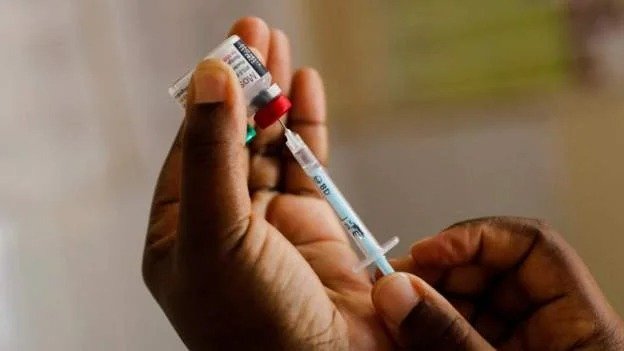Somali officials have reported a sharp increase in diphtheria cases and related deaths this year, as the response has been hampered by vaccine shortages and reduced U.S. aid.
Hussein Abdulkarim Mohiuddin, Director General of Somalia’s National Institute of Health, stated that more than 1,600 cases have been recorded so far, including 87 deaths, compared to 838 cases and 56 deaths during all of 2024.
Diphtheria is a bacterial disease that causes swollen glands, breathing difficulties, and fever, mostly affecting children. It can be prevented with a vaccine that became widely available in the mid-20th century.
Child vaccination rates in Somalia have improved over the past decade, but hundreds of thousands of children remain incompletely immunized. Health Minister Ali Haji Adam said the government has struggled to secure enough vaccines due to global shortages, while cuts in U.S. aid have made distributing the available doses even more difficult.
Before President Donald Trump cut most foreign aid earlier this year, the United States was Somalia’s largest donor, funding almost the entire health budget through external assistance.
Adam said: “The reduction of U.S. aid has had a major impact on the health funding Somalia used to receive. Many health centers have closed. Mobile vaccination teams that brought vaccines to remote areas lost their funding and are no longer operational.”
According to U.S. government statistics, total American foreign aid commitments to Somalia amount to $149 million for the fiscal year ending September 30, compared to $765 million the previous fiscal year.
In response to questions about the impact of U.S. aid cuts, a U.S. State Department spokesperson said: “The United States continues to provide life-saving foreign assistance in Somalia. America is the most generous country in the world, and we urge other nations to significantly increase their humanitarian efforts.”
The relief organization Save the Children reported last month that the closure of hundreds of health clinics in Somalia this year due to aid cuts has contributed to a doubling in cases of diphtheria, measles, whooping cough, cholera, and acute respiratory infections combined since mid-April.
In addition to the U.S., major Western donors including the UK, France, and Germany are also reducing their aid budgets.
Meanwhile, the Somali government has faced criticism from doctors and human rights activists for its limited health funding. In 2024, the government allocated only 4.8% of its budget to health, down from 8.5% the previous year, according to Amnesty International.

